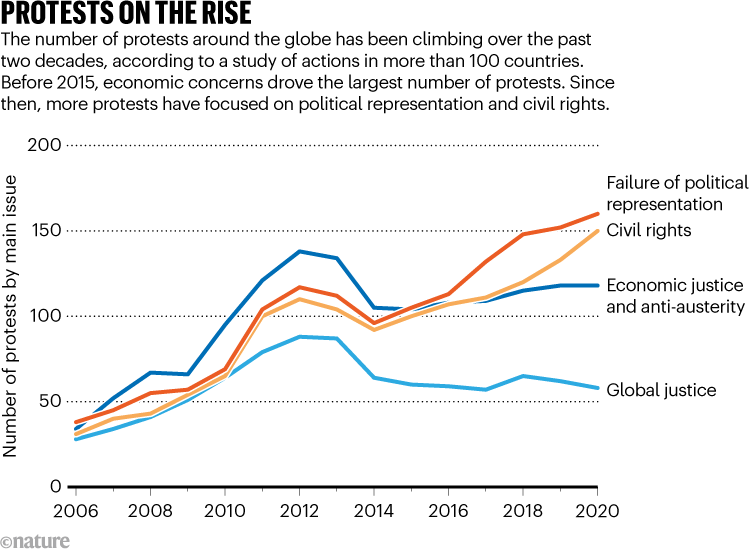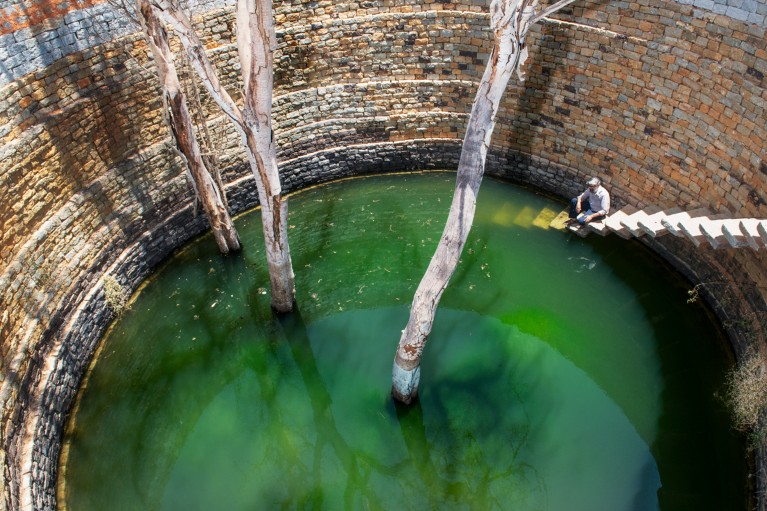Hello Nature readers, would you like to get this Briefing in your inbox free every day? Sign up here.

A recovery team was quick to locate the Chang’e-6 re-entry capsule.Credit: Xinhua/Shutterstock
The first rocks from the far side of the Moon have just landed safely on Earth. China’s Chang’e-6 re-entry capsule, containing up to two kilograms of materials scooped and drilled from the Moon’s most ancient basin, touched down in the grasslands of Inner Mongolia yesterday. The mission also carried four international instruments to the lunar orbit or surface, including a European Space Agency device that detected negative ions on the Moon for the first time.
Women who were on the contraceptive pill or previously diagnosed as infertile have reported getting pregnant with ‘Ozempic babies’ — conceived while they were taking the weight-loss and diabetes drugs known as GLP-1 agonists. Researchers say that the reports are plausible and there are several hypotheses about how the drugs might boost fertility. But until more data are available, the exact mechanism remains unknown.
Long-term loneliness is associated with a higher risk of stroke: yet more evidence that feeling lonely is harmful for our health. Researchers looked at data from people in the United States over the age of 50 who participated in a large study on health and retirement. Those who reported persistently high levels of loneliness had a 56% increased risk for stroke.
Reference: eClinicalMedicine paper
Features & opinion
Protests are on the rise — but are they effective at driving change? “The honest answer is ‘sometimes’,” says Lisa Mueller, who studies social movements. Large protests seem more effective than small ones; non-violent protests appear to be more potent than violent ones; unified goals might achieve more than diffuse demands do. Repression — by police, for instance — can win more support for protesters. “It’s a vibrant time to be studying protests,” Mueller says.

Source: Fig. 2 of Ref. 1
Motivation is the key, say the people who decided to do a doctoral degree, often as the domain of people in their twenties, later in life. “My success has come down to finding something I am passionate about, and not concerning myself with future employability,” says astrophysicist Peter Swanton. For those with financial or caring responsibilities, establishing effective work and study habits is important, says Marc Gentile, who kept a full-time job while doing his PhD, also in astrophysics. At the same time, “having a kiddo that needed me helped me to set and keep healthier boundaries than I think I would have otherwise”, says geologist Wendy Bohon.
The seemingly endless patchwork of rectangular blocks of land in the United States was created as an act of rebellion against land-ownership conventions in Europe — an expression of American exceptionalism, argues science historian Amir Alexander in his book Liberty’s Grid. But reviewer and National Academies scholar John Holmes sees the grid as a utilitarian choice. Alexander’s assertion that the grid caused a wealth of societal changes goes too far, Holmes says. “Industrialization, population growth, racism, immigration, wealth disparities and local geographies are more compelling explanations, in my opinion.”
Where I work

Vishwanath Srikantaiah is a civil engineer and urban planner working to restore wells across Bengaluru, India.Credit: Sayan Hazra for Nature
Civil engineer Vishwanath Srikantaiah works with local communities to revive historic wells, which were once in danger of being filled with concrete and built over. “In this photo, I’m visiting a once-abandoned well, known as the Three Trees Well, north of Bengaluru, India,” he says. The work of local people “has been rewarded by the well reconnecting with the below-ground aquifer and bringing water to the community again… this is a success story, and we need more of those.” (Nature | 3 min read)
Briefing readers have been tucking into this recipe for Neanderthal flatbread since we first shared it in this newsletter in 2022. The perfect accompaniment could be a foaming glass of this ancient Egyptian beer. Amateur brewer Dylan McDonnel chased down rare age-appropriate ingredients including sycamore figs and frankincense, and combined them with yeast gleaned from a 2,900-year-old amphora to make the brew. His ‘Sinai Sour’ has “a rich, refreshing, cider-like quality”, apparently.
While I plan my post-work pint, why not let me know what you think of this newsletter? Your e-mails are always welcome at briefing@nature.com.
Thanks for reading,
Flora Graham, senior editor, Nature Briefing
With contributions by Katrina Krämer
Want more? Sign up to our other free Nature Briefing newsletters:
• Nature Briefing: Microbiology — the most abundant living entities on our planet — microorganisms — and the role they play in health, the environment and food systems.
• Nature Briefing: Anthropocene — climate change, biodiversity, sustainability and geoengineering
• Nature Briefing: AI & Robotics — 100% written by humans, of course
• Nature Briefing: Cancer — a weekly newsletter written with cancer researchers in mind
• Nature Briefing: Translational Research — covers biotechnology, drug discovery and pharma

